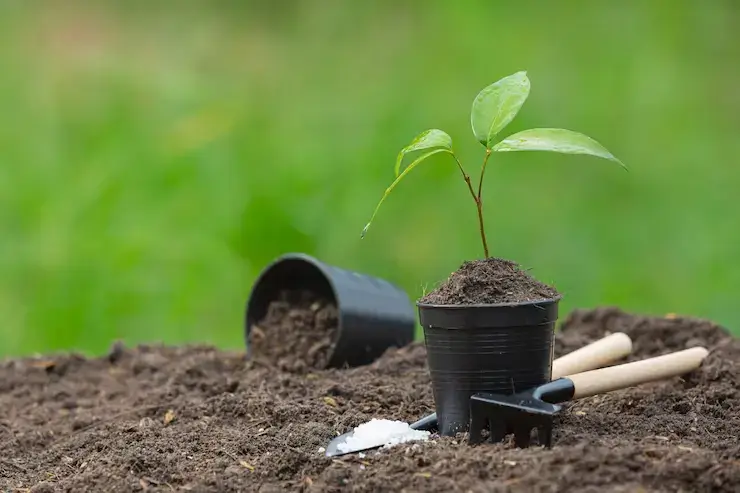Introduction To Small-Scale Farming
Recognizing the value of sustainability and self-sufficiency, Small-scale farming has enjoyed an upsurge in society. Individuals and families may grow their food, make money, and contribute to their local communities through small-scale farming. The appeal of small-scale farming is its adaptability; it can be tailored to different climates, available resources, and personal tastes. In this blog, we will look at some of the greatest small-scale farming ideas for increasing output and sustainability while cultivating a strong connection to the land.
Small-scale farming ideas
Here are some small-scale farming ideas that can help in increasing productivity and output-
Vertical Farming
Vertical farming is a novel method of cultivating crops in stacked levels to save space. This novel method eliminates the requirement for big tracts of land while enhancing total productivity. Vertical farms are appropriate for urban locations with limited space since they may be built inside or in greenhouses. Farmers may produce crops year-round while reducing water usage by managing climatic elements such as temperature, humidity, and light. Vertical farming may contain a wide range of crops such as leafy greens, herbs, and strawberries, resulting in a broad and sustainable food supply.
Aquaponics
Aquaponics is an environmentally friendly agricultural system that combines aquaculture (fish farming) and hydroponics (soilless plant growing). Fish and plants interact symbiotically in this system, forming a closed-loop ecology. The fish waste feeds the plants, while the plants filter the water for the fish. This approach uses less water than traditional farming and avoids the need for artificial fertilizers. Tilapia, trout, and perch are common aquaponics fish species, while leafy greens, tomatoes, and cucumbers flourish as crops.
Mushroom Production
Mushroom farming is a great small-scale farming idea since it allows farmers to cultivate edible fungus in controlled surroundings. Mushrooms are a high-value crop with a short growing season, making them a viable alternative for small growers. Because of their variety and demand in the culinary world, oysters, shiitake, and lion’s mane mushrooms are popular selections. Mushroom growing may be done inside or outdoors in shady areas using various substrates such as sawdust, straw, or coffee grounds.
Honeybee Production
Beekeeping, often known as honeybee farming, is helpful not just for honey production but also for pollination, which helps other crops develop. Small-scale beekeeping requires only a few beehives to get started, and it allows farmers to generate natural, local honey and beeswax products. Farmers may diversify their income streams by selling beeswax candles, lip balms, and other bee-related goods in addition to honey.
Permaculture Agriculture
Permaculture is a comprehensive agricultural technique that replicates natural ecosystems and emphasizes sustainability and self-sufficiency. Permaculture farmers construct resilient and productive systems by watching and understanding the natural processes of the land. Some of the most important aspects of permaculture farming include perennial crops, companion planting, and natural pest management. This strategy fosters little soil disturbance, biodiversity, and water use, making it an environmentally benign and productive agricultural practice.
Farming of Goats and Sheep
Goat and sheep farming may be a profitable small-scale endeavor for people who enjoy animal care. Goats and sheep are low-maintenance livestock that may be farmed for milk, meat, or fiber. These animals are effective grazers, allowing them to flourish on smaller amounts of ground. Furthermore, goat and sheep milk products, like cheese and yogurt, have grown in popularity in recent years, offering new income streams to small farms.
Vermicomposting
Vermicomposting is the process of converting organic waste into nutrient-rich compost using earthworms. This compost, known as vermicompost, is a great organic plant fertilizer. Small-scale farms may set up vermicomposting systems to recycle kitchen scraps and yard trash by employing composting containers and a worm population. Vermicomposting not only lowers trash to landfills, but it also enriches the soil, resulting in healthier and more productive crops.
Conclusion
Small-scale farming can affect positive change on numerous fronts, including encouraging sustainable agriculture, creating self-sufficiency, and assisting local communities. The topics covered in this blog are only the tip of the iceberg. Each farmer can customize his or her strategy depending on available resources, local climate, and personal preferences.
Individuals and families may develop nutritious and tasty food while also helping to establish a greener, more sustainable future for future generations by embracing these finest small-scale farming ideas. So, whether you have a little backyard, a rooftop, or several acres of ground, there’s a farming solution for you. Get your hands filthy, accept nature’s rhythms, and start your small-scale farming experience!

